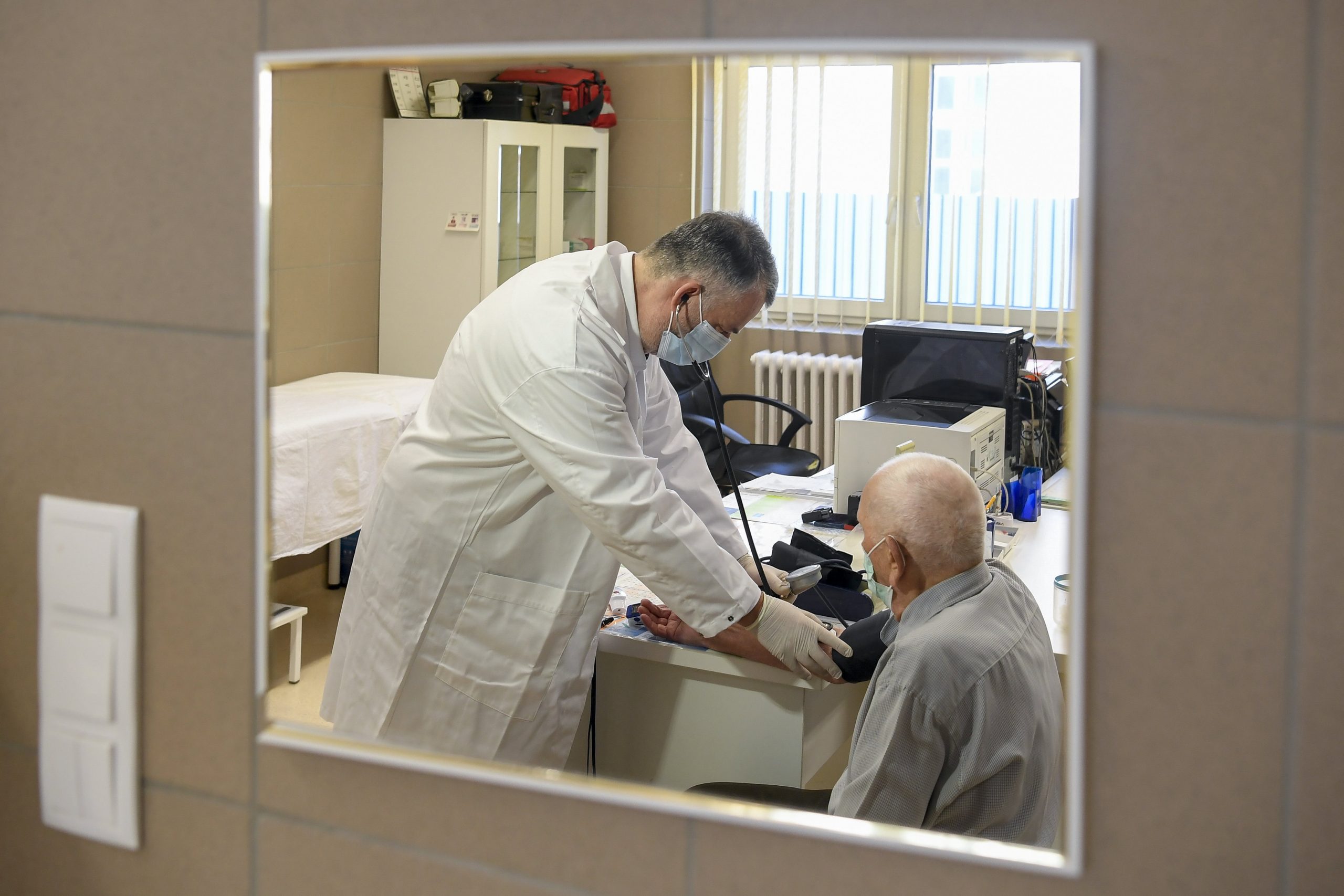
As President of Hungarian Medical Chamber Gyula Kincser put it, although the recently introduced increase in doctors' salaries was of "historic significance," the quality and accessibility of healthcare continue to decline.Continue reading

A law was adopted by the National Assembly on Tuesday by 122 votes in favor, 31 against and no abstentions, on the initiative of the government to abolish the compulsory membership of the Hungarian Medical Chamber. This will no doubt hit the powerful union hard in their pocket.
The legislation, nominated by the Interior Minister on Monday and adopted on Tuesday under an exceptional procedure, stipulates that medical activities can be carried out without membership of the Hungarian Medical Chamber. Membership of the chamber can be terminated voluntarily and at any time.
Speaking in parliament, Péter Takács, Secretary of State for Health at the Ministry of the Interior, said that the bill aims to ensure a high level of safe patient care that is accessible to all. He said that “by obstructing the operation of the new on-call system and thus endangering the healthcare of the Hungarian people, the Chamber is violating the basic rules of the nature of a democratic public body and is disregarding its own objectives.”
The legislation will transfer ongoing and future ethics procedures to the Health Science Council, just as the new code of ethics will be drawn up by this body and approved by the Interior Minister. In future, the Chamber will only have the right to give an opinion on the Code of Ethics.
Under the change, doctors will have until the thirtieth day after the new law goes into effect to declare whether they wish to retain their membership in the Chamber. The law will take effect on the day following its publication. Those who do not make a declaration will have their membership terminated by operation of law. The Hungarian Medical Chamber shall only formulate an opinion on the appointment of directors over its members from now on.
The legislation is another chapter in the dispute between the government and the Hungarian Medical Chamber.
Many in the opposition media have reported the development as a move by the government to dismantle a chamber it does not like and which does not share its views, but there is more to it than that.
At the heart of the current debate is the fact that from March 1, (from today), two counties, Szabolcs-Szatmár-Bereg and Győr-Moson-Sopron, would have to switch to the new system of on-call general practitioners, which would then be introduced throughout the country. Under the new system, the National Ambulance Service will manage evening and night duty at fewer duty points than before, but in a more organized way.
However, on February 4, the delegates’ meeting of the Hungarian Medical Chamber passed a decision calling on GPs not to sign contracts with the National Ambulance Service for the new on-call system.
They also called on doctors working in hospitals to deposit their voluntary overtime notices until the government starts a real dialogue on healthcare.
The action of the medical chamber was described by government representatives as pressure and an undignified attack not only on the cabinet but also on patients. In an interesting twist, the police have also become involved in the case after the possibility emerged that some doctors may have been intimidated into not signing the new contracts. According to the police, several doctors have received messages trying to influence their decisions and opinions on the issue, even by threats, in the context of the exercise of their profession. For this reason, the National Bureau of Investigation is investigating whether a crime has been committed.
It is not yet known how many people have signed the contract so far, but there were reports last week that no GPs in the Győr area had signed the on-call contract.
Gyula Kincses, President of the Hungarian Medical Chamber, stated at a press conference on Monday following the submission of the bill, that the government “launched a very harsh attack against the Hungarian Medical Chamber on the basis of absolutely false grounds and lies.” He said that the government had been looking for the right instrument to use in their anti-medical fight, and now they had found the right pretext.
Krisztina Porpáczy, vice-president of the regional organization of the Chamber, told 24.hu that their aim is not to boycott on-call duties- GPs know that on-call primary care is necessary and in the interest of patients. According to her, the critical attitude is not a goal, but a means to achieve a proper agreement on the healthcare system. She also pointed out that they have a problem with the measures of the government on the health sector, which in their opinion do not serve to improve the healthcare system in Hungary, “and even worsens the situation of citizens.” One of the doctors’ major problems is the lack of a public, accessible restructuring plan.
Featured photo via Pixabay